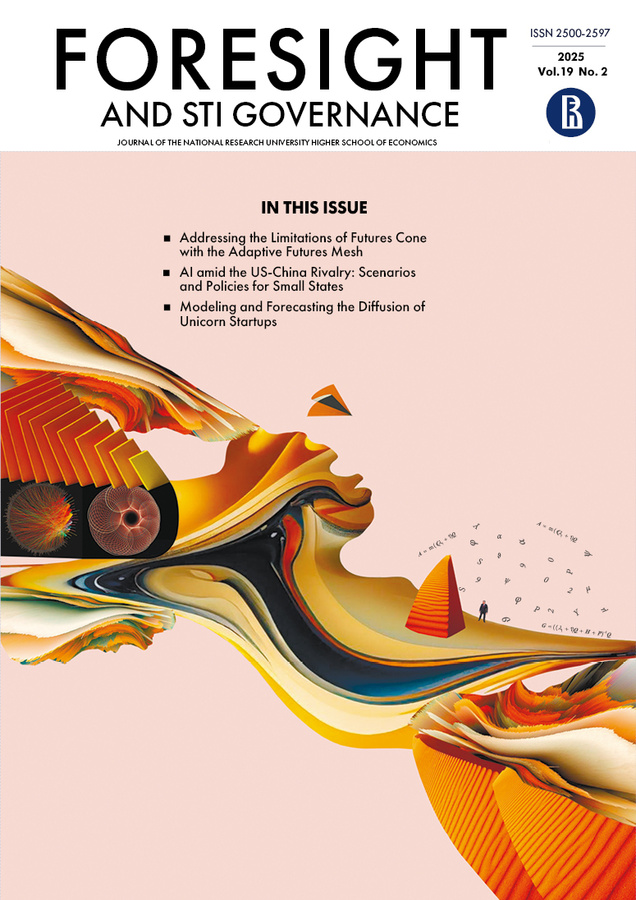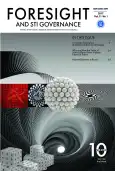Vol 11, No 1 (2017)
- Year: 2017
- Articles: 7
- URL: https://bakhtiniada.ru/1995-459X/issue/view/23792
Articles
 6-7
6-7


STRATEGIES
Corporate Foresight in Multinational Business Strategies
Abstract
 9-22
9-22


INNOVATION
Why and How the Value of Science-Based Firms Violates Financial Theory: Implications for Policy and Governance
Abstract
 24-30
24-30


Intellectual Capital and Its Impact on the Financial Performance of Russian Manufacturing Companies
Abstract
 31-40
31-40


SCIENCE
Scientific Cooperation in a German-Polish Border Region in the Light of EU Enlargement
Abstract
 42-53
42-53


MASTER CLASS
Approaches to Defining and Measuring Russia’s Internet Economy
Abstract
The rapid development of digital technologies ischanging production processes and forms of interaction. It has encouraged growing interest in electronic content and created a new segment of the economy where all actors rely on the internet. These processes are most noticeable in developed countries. Russia is no exception. The development of the domestic segment of the internet economy — the economy of the Runet — is of particular importance due to the size of the country, the significant socioeconomic heterogeneity and underdevelopment of the transportation networks in the Russian regions. A study of the phenomenon of the internet economy requires a reliable information base. It is hard to provide an adequate quantitative estimate of the size of the Internet economy for the following reasons. First, the existing statistical indicator system was created before the Internet and Internet businesses were widespread. Secondly, this new segment of economy is much more heterogeneous than traditional sectors and industries and thus difficult to measure. This paper summarises the results of a review of international and Russian approaches on how to measure the Internet economy. It also introduces a new way to measure the size of Russia’s Internet economy that is based on the principles of the System of National Accounts (SNA), using officially available statistical data, thus making this approach different from the previous recommendations. This new approach ensures a stable reproducibility of calculations, reliability and comparability of results as well as compliance with the standards of government statistics. The evaluation of the dynamics of economic processes that drive the Internet economy was not in the scope of the study. This requires a separate study, including an analysis of how indices of constant quality that neutralize the effect of changes in consumer product properties and deflators are created. The authors stipulate that these research areas hold independent interest.
 55-65
55-65


The Development of an Intelligent Leadership Model for State Universities
Abstract
 66-74
66-74











